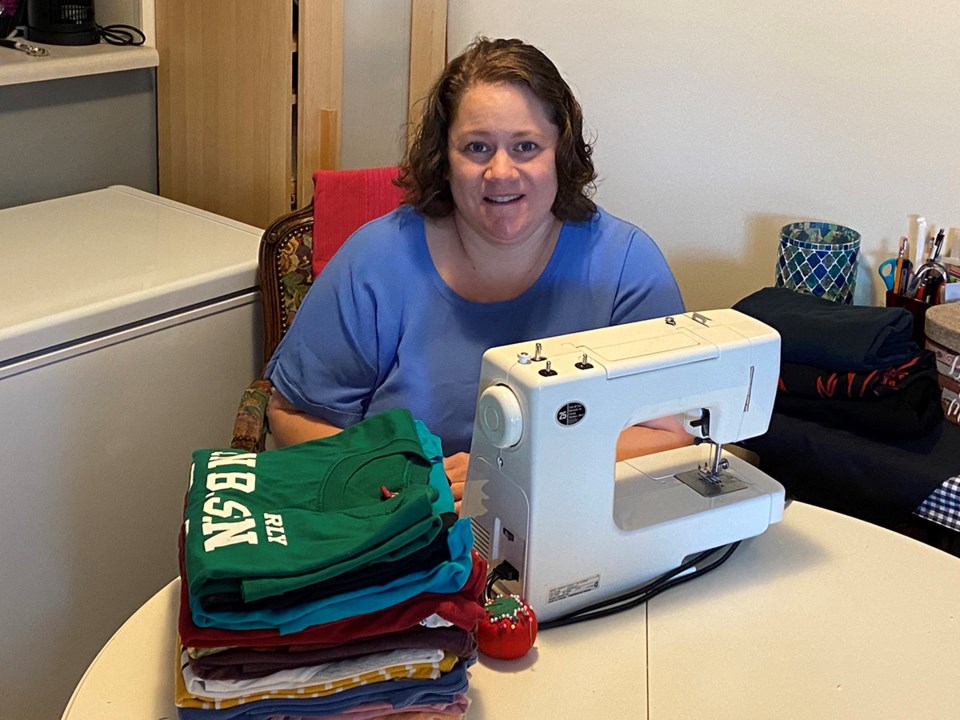There may be no solace for a young girl who has just lost her father, but a Richmond resident is hoping to show her comfort by embracing her in a quilt made from her late father’s T-shirts.
Warlito Valdez, who worked for the Richmond Society of Community Living (RSCL), passed away on April 5 after he was exposed to COVID-19 while working as a front-line essential worker. He left behind his wife Flozier and young daughter Charlotte.
Pamela Sheaves, a long-time Richmond resident, took to social media after learning of Valdez’s passing in hopes others in the community would want to join her in making a handmade quilt out of T-shirts for his daughter.
“When I heard about (Valdez’s) passing and that he left behind a young child, it kind of just struck me,” said Sheaves, adding that she experienced loss before and understood how it felt.
“I thought it would be nice to have something of his, like a quilt, so that (Charlotte) can carry it around with her for the rest of her life, but I’m not capable of doing it on my own, so I reached out to the community to see if anyone would be willing to help and somehow go from there.”
Sheaves had since collected Valdez’s old T-shirts and clothes, which were professionally sanitized and cleaned by RSCL, and connected with two volunteers who reached out to help with the quilt.
The project, said Sheaves, will be a simple twin-sized quilt that will carry a part of Valdez’s memory in it, but the process of making it isn’t as simple as it sounds.
Sheaves told the Richmond News that they are finding difficulty sourcing their main material called interfacing, a textile used to make garments more rigid, because many people are using it to make masks and sewing projects during the pandemic.
T-shirts are made with fabric that have a natural stretch to them and when sewn can cause the shape to distort. In order to “stiffen up the material,” interfacing is needed so the project can move forward, she added.
When asked how long the quilt will take, Sheaves hoped to have it completed by the end of summer, if not before. She added that it also depended on how long it would take to get the needed material and the time the quilt will be “quarantined for” as it moves to other volunteers.
“As the quilt leaves my hands, we will have to take extra steps to make sure it’s ‘safe’ so it will need to be quarantined as it gets passed from hand-to-hand in the community.”
The quilt, said Sheaves, will be a symbol of the community coming together and supporting each other, and although there are restrictions in place, she wants the family to know they are not alone.
“By working together on a project, even though we can’t physically be together, reminds us that we’re not alone and we’re working on something that is special and meaningful for someone else and that is what a community is about.”
For those interested in the project, Sheaves can be contacted at [email protected]



